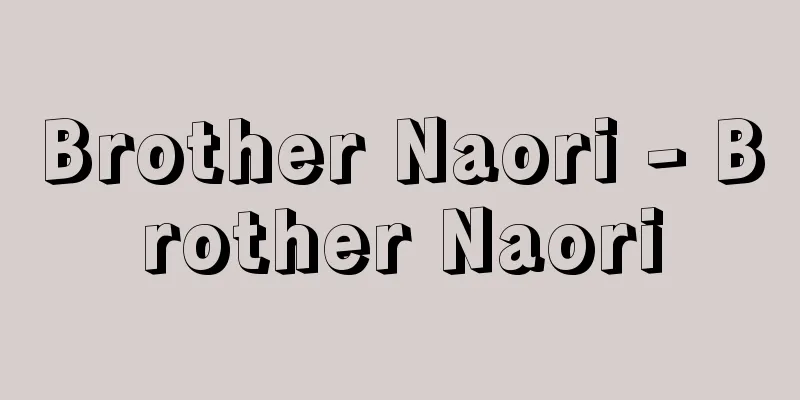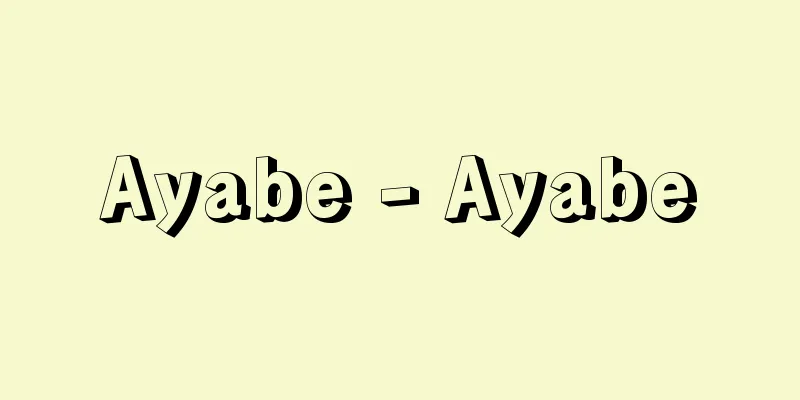Brother Naori - Brother Naori

|
…In this case, the newborn child is treated as the child of the younger brother, not the deceased brother. In Japan, this was also popular and called Ototonaori or Gyakuen. This was because it was convenient for the smooth continuation of the family, such as managing the family business, treating surviving children and wives, and maintaining blood and marriage ties. … *Some of the terminology explanations that mention "Otouto Naori" are listed below. Source | Heibonsha World Encyclopedia 2nd Edition | Information |
|
…この場合,生まれた子は亡兄でなく弟の子として扱われる。日本でも,オトウトナオリ,逆縁などと称されて好んで行われていた。これは家業の運営,遺子やヨメの処遇,血筋や姻縁関係の維持など,イエの円滑な存続に好都合であったからである。… ※「オトウトナオリ」について言及している用語解説の一部を掲載しています。 出典|株式会社平凡社世界大百科事典 第2版について | 情報 |
Recommend
Specialty - Specialty
〘noun〙 (meaning to get one's wish)① (━suru) To...
Quail beans - Quail beans
...It is widely used as a staple food in Central ...
Water supply rope (English: Shuǐ dào tí gāng)
A comprehensive river journal created during the Q...
Maks (English spelling)
Various miscellaneous taxes that have no basis in ...
Glass Screen
...In this way, the screen functions to change th...
moonwort
... Himehanawarabera is sometimes called Hebinosh...
Kado (herring) - Kado
…A migratory fish of the polar zone that is widel...
River construction - Kasenkouji
Construction work carried out on rivers for flood...
Anglo-French (English spelling)
…After the Norman Conquest, the ruling class and ...
Qurna al-Saudā' (English spelling) Qurna al Sauda
…The eastern side of the mountain falls steeply a...
Ahmedy - Ahmedy
In the early 14th and 15th centuries, the pioneer...
X-ray photo - X-ray photography
A photograph that uses X-rays as a light source. I...
Tulipa fosteriana (English spelling)
…[Hiroshi Aramata]. … *Some of the terminology th...
Bingo Kasuri
Cotton kasuri is produced in the area of Fukuya...
SBR - Styrene-butadiene rubber
The most representative synthetic rubber with prop...









